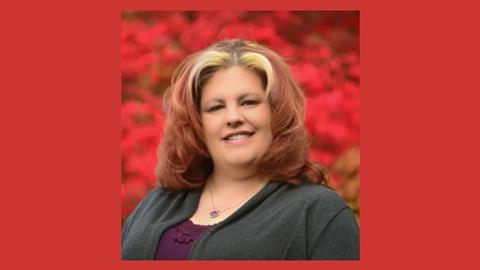Like many of us, Lori Peters finds the emotional problem of evil to be one of the greatest barriers to belief. Apologist Joel Furches shares some of her story, looking at how she has worked through this in her own life and with others
Lori Peters is a woman who has seen her fair share of hardships. She fell pregnant as a teenager, becoming a single mother at the age of 17. She married after her fiance graduated from the Air Force Academy, only to be told by doctors that she would never be able to have children again.
Hope over false hope
While this heartbreaking shock proved to be false, she continued to have chronic issues with her health, and one of her next six pregnancies resulted in the loss of the child after 14 weeks:
“I was incensed as to why God would allow this kind of suffering. I was angry and hurt for many weeks and really ignored God. Thankfully, his faithfulness and consistent promptings from the Holy Spirit broke my stubbornness and I turned to him. My heart still aches even eight years later, but I know my God is still with me.”
Read more:
Adrienne Johnson’s unlikely conversion to Christianity
How a biology major who struggled to share her faith became an apologist
A Jehovah’s Witness’ journey away from and back towards God
How a spiritually confused comedian became an apologist
It is possibly this struggle that has led to Lori’s heart and focus in her defence of the Christian faith:
“I am passionate about two particular areas of apologetics. The first is bioethics. Having been faced with the decision to carry to term, serving as a volunteer and then a pregnancy centre director, I strongly defend the unborn and helping women.
“The second area that I am really focusing on is the problem of evil. I find the emotional problem of evil to be one of the greatest barriers to following Christ. I also believe that oftentimes we place too much responsibility on God to either prevent suffering or to find some good outcome as a result of horrendous evil. This misunderstanding creates doubt and anger towards the only one who can truly bring lasting comfort.”
The singing apologist
This dual focus—bioethics and the problem of pain—has caused Lori to spend time reconciling the emotional aspects of faith with the logical and reasoning aspects of apologetics. She describes herself as a “singing apologist”:
“I work both in apologetics and as a worship leader. Often apologists are considered too intellectual and worship leaders too emotional. My love for both allows me to teach others to worship the Lord with all the heart and all the mind – together. I also think that being in worship ministry helps me to see past others’ intellectual barriers and get down to the heart issue that prevents them from giving their lives to Jesus.”
Lori is a devoted wife and mother. She is also one of the few females to lead a chapter of the college apologetics group, Ratio Christi.
Get access to exclusive bonus content & updates: register & sign up to the Premier Unbelievable? newsletter!
The importance of women in apologetics
Lori finds that the world she inhabits, being a female Christian apologist, can be a lonely one. She advocates for more women to tackle this field in need of more female influence. She says:
“I think one particular challenge is that there are only a few, but fabulous, female apologist mentors. For some women it can be daunting to take on a male dominated field or attend male heavy conferences. I think this is changing but I would like to see more plenary speakers filled with qualified women so that other women would be encouraged to attend these great conferences.”
As a female apologist, Lori hopes to meet the need for female mentors in the field herself:
“I think that as women like me continue to fill the higher academic slots as students and professors, we show the world that apologetics is for everybody and that Christianity does not suppress the education of women. I also think it brings new ideas and new creativity in defending the faith in a world that is constantly changing.”
Joel Furches is an apologist, journalist and researcher on conversion and deconversion, based in the USA.

























